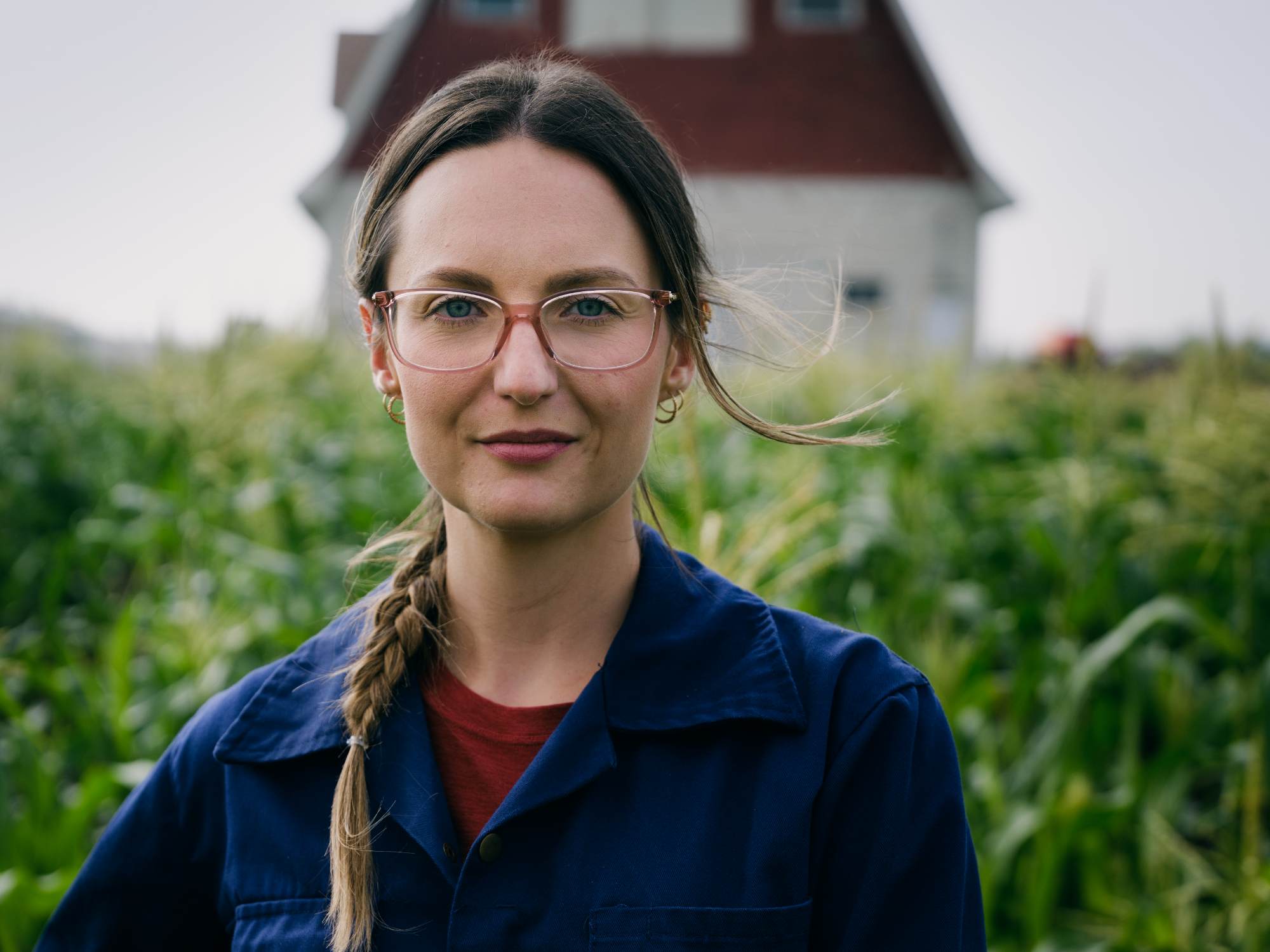Elocution, fermentation and solving food insecurity
Anna Schmidt - 9 December 2024

Haley Wolgien-Lowe
After weeks of failed experiments, Haley Wolgien-Lowe found and corrected a small error in her calculations. When she stepped into the lab the next morning, she was greeted with an unmistakable sign of success: a pastel pink liquid bubbling in her fermentation bioreactor.
The solution, which deceptively resembles a strawberry milkshake, signaled that she had finally started growing the bacteria that would make small single-cell protein — a seriously valuable food source.
“My project is centered around making an alternative protein for animal feed,” says Wolgien-Lowe, a master’s student of bioresource technology in the University of Alberta’s Faculty of Agricultural, Life & Environmental Sciences. “This means less land usage, less water required, more food for humans, and a sustainable way of using a fossil fuel byproduct,” she says. “The more we can diversify our food options the better.”
In the Bressler Lab, Wolgien-Lowe is tackling food insecurity and environmental issues with research that can one day potentially reduce reliance on traditional feed sources. She is grateful for the generous support from donors that makes student research possible by granting access to sophisticated labs and spaces.
Access to those kinds of enhanced learning environments is one of the areas Shape the Future is committed to supporting. Shape the Future is a fundraising campaign dedicated to student success through three main areas: enhanced learning environments, hands-on experiences, and scholarships, awards and bursaries. By supporting the campaign, donors can help open doors for students like Wolgien-Lowe to become leaders, innovators and change makers.
But it isn’t just technology-rich labs that Shape the Future aims to support — it also includes environments that are safe, inclusive, and provide students with the tools they need to succeed. While Wolgien-Lowe spends most of her time in the lab these days, her journey to scientific success started over ten years ago in another corner of campus, in another facility made possible by donor support.
At 20, Wolgien-Lowe walked into the Institute for Stuttering Treatment and Research, a donor-funded not-for-profit based in the U of A’s Faculty of Rehabilitation Medicine. After a lifelong struggle with a debilitating stutter, she was determined to give therapy one more try by attending ISTAR’s three-week intensive speech clinic.
“It was terrifying. It takes a lot of humility to be willing to completely learn how to talk again,” says Wolgien-Lowe. “But the moment you walk in, you feel calmer and you speak better because it fosters such a safe and welcoming environment.”
“After I did my intensive clinic, I had a lot of success. I found that once I was able to speak how I wanted, I had a lot to say.”
Since that moment, Wolgien-Lowe has taken every opportunity to use her voice. She volunteers with ISTAR, sharing her experience with classes of speech-language pathology students and rooms of people just like her. Last year, she even helped lead a small therapy and social group for teenage girls with stuttering disorders.
She also began speaking about her research. Earlier this year, Wolgien-Lowe reached the finals in the Three Minute Thesis competition, an academic event where participants explain their research to the public in just 180 seconds.
“When it comes to bringing science into the real world, you have to be able to communicate what you're doing and why it matters,” she says. “Thanks to the speech therapy I received, I was able to develop my science communication skills and take advantage of opportunities to share my research.”
As she prepares to graduate with her MSc this spring, Wolgien-Lowe is looking forward to bringing both her scientific and communication skills straight to industry. “I like the idea of giving back and making change in the world,” she says — just as others gave to support her personal and educational journey.
“Supporting students in higher education — it's a way of caring. It says: ‘I think the work you're doing is valuable. I think you have potential to make a difference. I believe in you.’ ”
Students have a remarkable will to change the world. They will broaden our horizons, feed the world, improve health outcomes and take on inequity. Join the Shape the Future campaign as we raise $100 million to provide the next generation of U of A change makers with the access, opportunities and spaces that will help them shape an inspiring future for all.
- See how Wolgien-Lowe and others will make a difference in the Shape the Future video.
- More Stories of Impact: